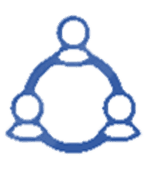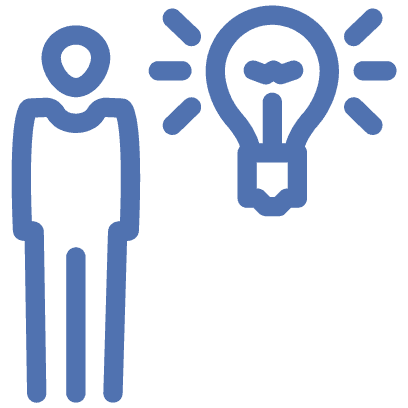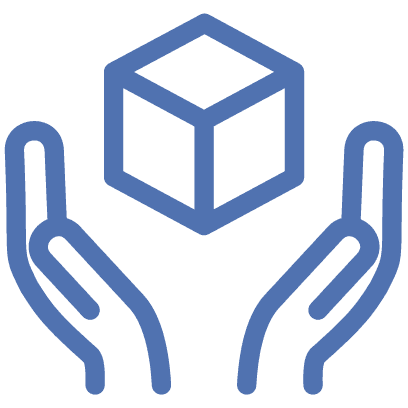Strategy in Context
CIOs and Library leaders must strategize their unit’s work within the mission, opportunities, strategy and challenges of their institution and the wider sector in general.
One of your existing skills is that you have demonstrated the capacity to come up with answers to tough questions. Now let’s reverse the process and challenge you to come up with a list of questions: What are the opportunities and challenges on your Vice Chancellor’s (VC’s) mind? What are the strategic prospects for your own university and all of higher education? At the same time, what are the current threats to your institution’s reputation that you need to understand and navigate to realize the VC’s vision for the future?
Where do Library and Information Technology (IT) fit in to this? What do effective leaders do to ensure they are “part of the solution,” and not the problem? And what skill sets and understanding support their success?
This session will provide a higher-level strategic awareness of a broad spectrum of higher education issues, trends and institutional decision-making drivers. Participants will learn about Library and IT’s relationship to the overall institution and sector and the importance of Strategy for leaders in higher education.

The Self-Aware Leader
Self-awareness and the ability to manage emotions are essential to maintaining relationships required for success
One of the most positive characteristics of a good leader is the ability to effectively manage relationships with people connected to their work. Professional relationships are built upon many commonly recognised factors, but they are also affected by our own emotions and the emotions of others within the workplace.
Self-awareness describes the ability of a leader to understand and manage their self in order to create better outcomes. This session will cover the key concepts of understanding our own capabilities, self-worth, and emotional state (self-awareness), managing our emotions and controlling our actions (self-management), understanding our interpersonal connections with others (social awareness), and ultimately understanding how these all contribute to productive positive relationships (relationship management). Mastery of self is essential to successful business relationships and delivering outstanding performance. This session will examine the key elements of self-awareness, skills, and emotional maturity required of senior leaders.

Crucial Communications
Great communicators bring strong listening skills to their conversations, have a set of tools to support crucial communications, flexing their style where necessary based on who they are communicating to.
Successful leaders take responsibility for making sure they clearly communicate ideas that reach up, across and outside their own organisation. This requires an awareness of their own communication style and the ability to flex their communication style so others, who may have a different preferred style, hear the intended message. In addition, successful leaders understand their values and personal brand – and possess a toolbox of communication strategies to employ as they find themselves in different communication contexts.
During this session participants will become more aware of their natural communication style and learn how to adapt during a range of crucial conversations. In addition, participants will learn about the importance of active listening and will practice this skill in context of their communication. They will develop an understanding of skills needed to engage in difficult conversations and will discuss the importance of storytelling and pitch skills for effective leaders. Finally, participants will have time to reflect on their current collection of communication skills and identify new communication strategies they want to develop.

Harnessing Politics and Culture
Navigating institutional leadership demands more than one lens - strategy, politics, and culture must all come into focus.
Senior leadership roles require a complex array of skills to effectively navigate institutional dynamics, shape a positive culture and drive strategic direction. Success hinges on understanding and navigating the intricate interplay between strategy, politics and culture.
This session introduces tools, frameworks and examples to provide a foundation for ongoing development to successfully navigate internal and external influences. Strategic success requires gaining the support of Executives and peers whose goals and motives can be complex and opaque. Navigating these institutional politics is often challenging and deeply uncomfortable.
Effective strategy execution also depends on fostering a unified, collaborative culture.. Transitioning from leading a team to influencing at an enterprise level demands a fundamental shift in mindset and the ability to act across three lenses. This session equips leaders with the insights and capabilities to take that next step with confidence.

Change Leadership
Change is inevitable and constant, and successfully navigating it requires nimble and agile leadership.
If you reflect back over the last few years, much has changed in the world - technology innovations, major political shifts, death of rock legends, the birth of a new generation of Star Wars fans, great sporting successes and tragic ecological disasters – change is a natural part of life.
In spite of this, it is interesting that, for many of us, embracing change seems incredibly hard. More difficult still is the role of the leader in steering the ship through the choppy, and sometimes troubled, waters of change. This session recognises that innovation requires leaders to be nimble and agile in the face of many competing demands and high expectations. To be at the leading edge, or even just to keep up requires change after change – to our practice, services, delivery models, structures and thinking. The reality is that we are in a constant state of flux and we must determine the best way to take advantage of change to triumph.
Transition through changes needs careful management and benefits from some scaffolding through the use of best practice tools. This session will explore real examples of change and its leadership.

Collaborative Leadership
Collaborative leaders decide when to, and when not to, collaborate, identify barriers to collaboration and use levers to overcome those barriers.
A leader that excels in collaboration is valued in any organisation. Knowing how best to work across universities is essential for senior leaders and adopting a collaboration mindset is critical to your success.
During this session the concepts of the “disciplined collaborator,” and “radical collaboration” will be discussed. You will reflect on your organisation’s collaborative strengths, barriers, and levers to overcome these barriers. In addition, you will learn ways to strengthen your own collaborative leadership style and facilitate collaborative decision-making processes.

Decision-Making in Ambiguity
Leaders must help their teams push through ambiguity, create alternatives and enhance clarity.
Organisations and their leaders often work in an environment that has more ambiguity than clarity, due to increasingly complex and rapidly changing political and economic environments, technological capabilities, and competition, as well as the needs and priorities of a variety of internal and external stakeholders. More than ever, decisions are made with overwhelming levels of information and yet, greater uncertainty. Senior leaders need to help their organisations make sound decisions even when the future path is not clear.
This session will explore some of the fundamental issues surrounding effective decision-making, such as power and authority, organisational culture, and strategies for influence. It will also consider the interrelationships between organisational structures, culture and strategy in the decision-making process.

Resilient Leadership
Sharing your “why” aligning with your values and maintaining humility and passion will carry your team through difficulty to greatness.
By truly understanding the reasons “why” behind our work we can inspire teams to coalesce around a common deeply held mission. You can become a stronger leader and your teams will deliver more meaningful and sustained results.
This session will cover leading with why and how you can better understand and share the mission behind your organisation.
A related concept we will cover is to develop close alignment of your personal values and your role as a leader. This will help you be a more authentic and resilient leader.
Understanding yourself (through introspection/self-awareness), your motives and values, and your unique capacity to contribute to the world and to your organisation will help you and your organisation make it through difficult times. Courage and resilience start with an honest examination of yourself and why you do the work you do.

Careers by Design
Thinking of our careers as journeys to be designed, instead of destinations to be reached.
You possess experience, ambition and talent, but how can you put those together to design a career that fulfills and excites you? What are approaches others have found helpful in iterating their careers? How can you keep all this in mind when it’s time to consider that next opportunity?
This session will engage participants in applying aspects of design thinking to how we conceive and manage our careers, whether that be moving from management to executive roles, or a series of latticed movements. The dialogue will range from what it takes to create a high level and diverse portfolio of experience, to considerations of demonstrating impactful leadership in the interview and selection process. This session is intended to enable participants to take the first steps in designing future paths.

Executive Insight
Before you are a leader, success is all about growing yourself. When you become a leader, success is all about growing others.
The Higher Education Landscape influences decisions our institutions take, and hence the scope and extent of activities we undertake. Understanding leadership in the Higher Education landscape and its impact on our institution’s strategies provides us with context for our planning.
This session will provide an opportunity to hear from a leading Senior Executive. The speaker will present insights into the importance of leadership within the higher education sector. Following the remarks you will have the opportunity to pose questions to them for further exploration and insights into leadership, more broadly.

One-on-one Mentoring
Throughout the week you will have many opportunities to participate in individual mentoring sessions with all of the Faculty members. These sessions are an invaluable tool for you and you are free to initiate and drive the content of the discussion to suit your needs.

Team Profiling Tool
The Belbin profiling tool is used as a foundation for the program content. The value of utilising a profiling tool will bring a range of benefits to the individual, the team and the organisation as a great awareness of behavioural strengths and allowable weaknesses are identified.

Connect with CAUDIT
CAUDIT acknowledges the Traditional Owners of the lands where we live, learn and work. We pay our respects to Elders past and present and celebrate the stories, culture and traditions of all First Nations people.
